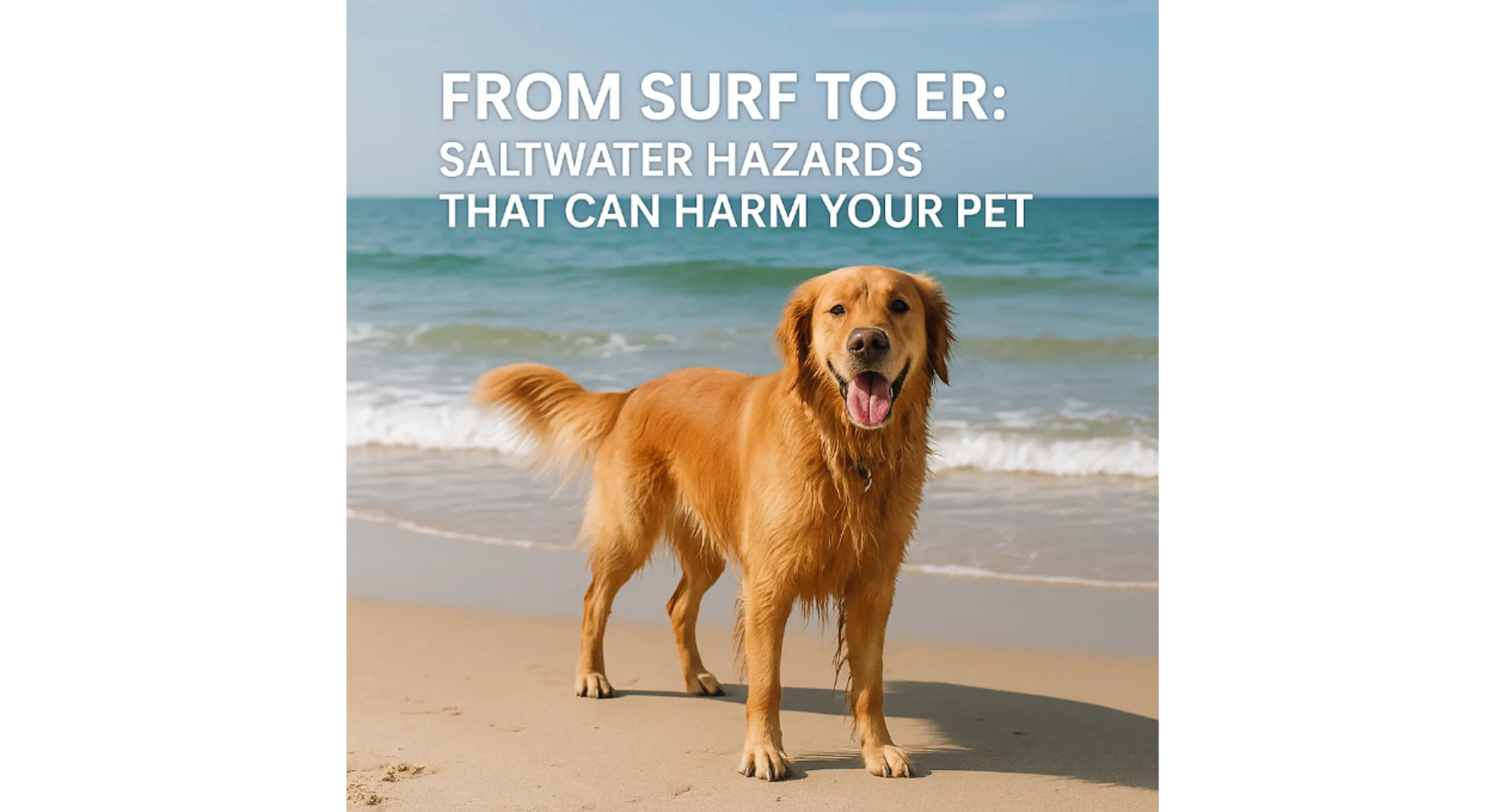From Surf to ER: Saltwater Hazards That Can Harm Your Pet
July 1, 2025 · Pet Safety

The Seacoast’s beaches are a favorite summer destination for locals and their dogs, but did you know that a seemingly harmless splash in the ocean can quickly turn into an emergency vet visit?
At Port City Veterinary Referral Hospital, we see a rise in saltwater-related emergencies every summer. Here’s what pet owners need to know to enjoy beach days safely and responsibly.
Q: Can dogs get sick from drinking ocean water?
Absolutely. Ocean water contains high concentrations of salt, and when pets drink too much of it, whether intentionally or just while playing fetch in the waves, they can develop salt toxicity, or hypernatremia.
Even a few mouthfuls can trigger symptoms such as:
Vomiting and diarrhea
Muscle tremors or seizures
Disorientation or extreme lethargy
If left untreated, salt toxicity can be life-threatening.
Q: What are the signs my pet is having a bad reaction to beach exposure?
Watch closely for:
Frequent vomiting after coming home
Sudden weakness or confusion
Uncoordinated walking
Excessive drooling
Ongoing diarrhea
If your dog or cat shows any of these signs after a beach trip, it’s time to contact an emergency vet, immediately.
Q: Is saltwater bad for my pet’s skin or paws?
Yes. Saltwater can cause skin irritation, especially in sensitive areas like the paw pads, groin, mouth, and eyes. Sand can also get trapped in fur and between toes, leading to chafing or infection.
Pro tip: Always rinse your pet thoroughly with fresh water after beach play. It’s a simple step that prevents a lot of discomfort.
Q: Besides the water, are there other dangers at the beach?
Definitely. A day at the beach comes with several hidden hazards:
Jellyfish stings – painful and potentially toxic
Dead fish, seaweed, and marine waste – tempting to eat, often dangerous
Sharp shells, glass, or debris – can cause paw injuries
Sand ingestion – common in dogs that dig or eat off the ground, and can lead to intestinal blockages
Q: When should I take my pet to the ER after a beach trip?
If your pet is:
Vomiting more than once
Struggling to walk
Shaking or seizing
Extremely lethargic
Not acting like themselves within a few hours of beach exposure
Do not wait. These symptoms could indicate salt toxicity, dehydration, or other serious complications. Our emergency team at Port City Veterinary Referral Hospital in Portsmouth is available 24/7 to provide expert, compassionate care.
Safe Beach Day Tips for Pet Owners
Pack fresh water and a collapsible bowl
Don’t let your pet drink from the ocean
Rinse off salt and sand after swimming
Watch for signs of fatigue or overheating
Keep them on leash in unfamiliar areas
Summer memories are best when everyone gets home safe and happy. If something feels “off” after a beach adventure, trust your gut and give us a call. We’re here to help when ocean fun goes overboard.
📍 Port City Veterinary Referral Hospital – Your trusted 24/7 emergency vet in Portsmouth, NH.
